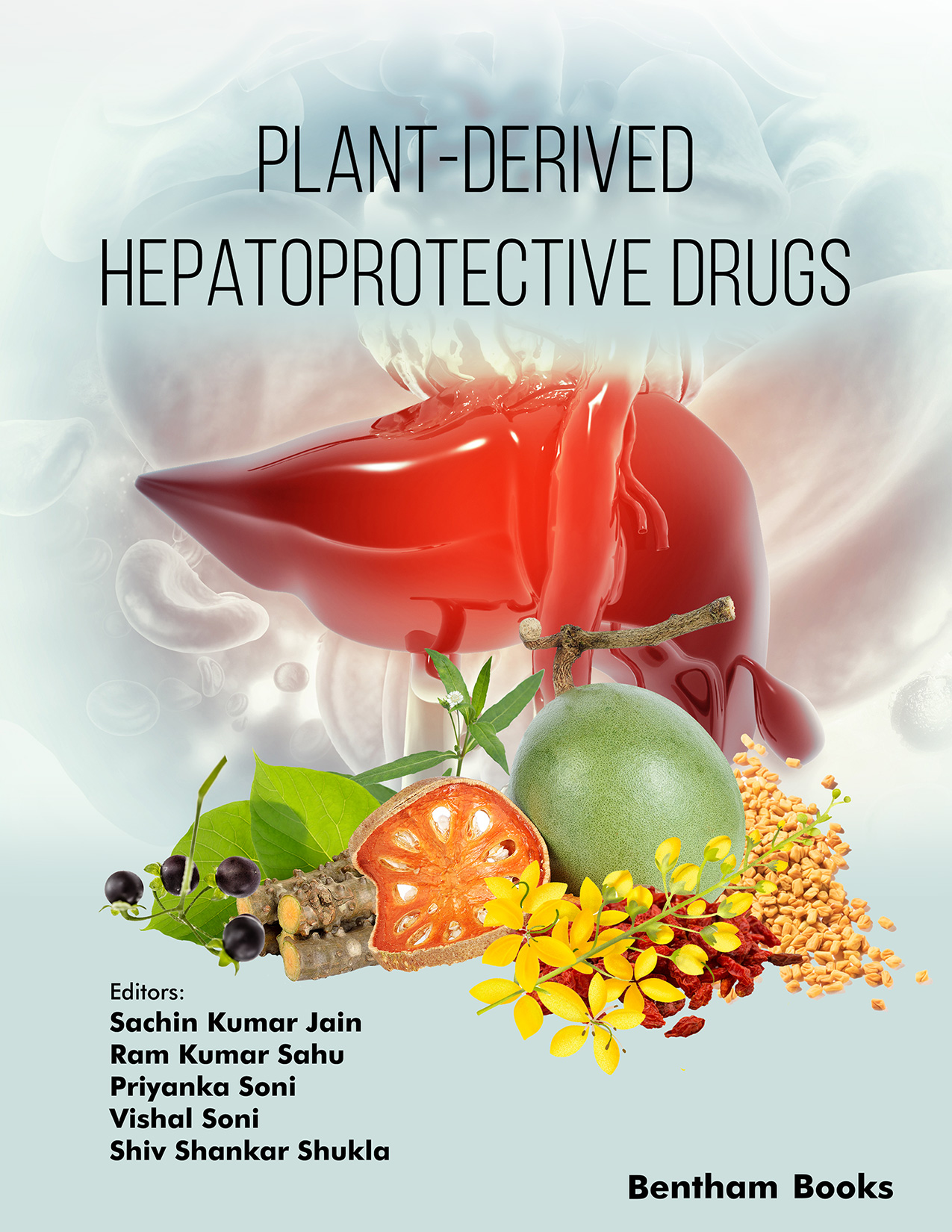Since the ancient period, plants have shown a pivotal role in leading a healthy life. In developing countries, plant based medicines have great importance to the people. Herbal medicines are
used for the treatment of liver diseases for an extended time. The Liver, is the foremost organ for maintaining the human body’s internal surroundings. Its major influence is on the flow of nutrients and controls the metabolism of carbohydrates, macromolecule and fats.
The book is an exclusive version of instructive matter in the aspect of Plant Derived
Hepatoprotectives, a compilation of ten excellent review articles presenting the latest development
in this field of natural product services. They cover a wide range of topics, all relevant to the
evidence based therapeutic, protective and olfactory uses of common herbs.
The review by Ikbal
et al. is focused on the anatomy, functions of the liver, types of liver injury,
risk factors and various treatment strategies for liver diseases. Toxicology of the liver is a
complex concept that entails either concurrent as well as sequential events. Drug-induced
liver injury to the liver can match any form of acute or chronic liver injury. In the next
review, the authors have highlighted the various hepatoprotective roles of medicinal plants.
Details of Bioactive components and mode of action of hepatoprotective activity of the medicinal
plant. With fewer side effects, herbal drugs have gained much attention in the mitigation of
various liver disorders and in maintaining a healthy life. The author has provided a
comprehensive chapter covering the scientific hepatoprotective agents that are often the treatment
of choice to improve liver function and protect the liver from exposure to harmful
compounds. Impressive studies have exposed that the health-promoting outcomes of bioactive
constituents derivated from plants have often been applied to their antioxidant characteristics and
raise cellular antioxidant protection system, scavenge free radicals, suppress lipid
peroxidation, stimulate anti-inflammatory capacity, and assure the liver from destruction.
These compounds are chlorogenic acid, curcumin, quercetin, hesperidin, rutin, betalains,
apigenin, sylimarin, phyllanthin, mangiferin, α-mangostin, bellidifolin, ginsenosides,
glycyrrhizin, lycopene, and andrographolide. Anishma
et al has contributed a chapter on
hepatoprotective effect of flavonoids. Many of the flavonoids have hepatoprotective activity
and they are been used in traditional medicine to treat any kind of diseases like liver
dysfunction and other damages caused by hepatoprotective. The next review by Jain NK and
Singh N is also focused on various hepatoprotective plants and herbal formulations. Authors
compile information on promising phytochemicals from medicinal plants that have been
tested in hepatotoxicity models using cutting-edge scientific methods.
The next review by Jha
et al. is also focused on the Regulatory affairs in herbal products. The
review focused on various parameters/guidelines regulating the safety and efficacy of herbal
pharmaceuticals, as well as their manufacturing and distribution, which have been strongly
implemented by regulatory bodies. This chapter covers the importance of regulatory affairs to
be used in the processing of herbs and herbal products and a comparative study of regulatory
situations in different countries. Chakraborty R and Sen S have written a chapter on
Hepatoprotective effects of edible plants and spices. The author focused on as part of the diet,
edible plants could play an important role in protecting the liver from injury caused by
oxidative stress, microorganism, or other exogenous substances This chapter highlighted
edible plants with hepatoprotective activity. Koka SS
et al. discuss the the role of terpenoids as
hepatoprotective. Plants with a high level of terpenoids appear to have good hepatoprotective
properties. Sweta S Koka
et al. focused on the hepatoprotective effect of the tannin-rich compound.
The tannin-containing drugs suppress or inhibit the formation of free radicals generated due to
the metabolism of hepato-toxins. Tannins are widely used in marketed formulations that are used in the treatment of hepato-toxicity. The next review by Sarkar BK presented a chapter on
hepatoprotective phytochemicals: isolation and characterization from plant extracts. The
author has presented the advances in phytochemistry. The authors have presented the advance
in phytochemistry and the number of herbal and herbomineral preparations available in the
Ayurveda, the traditional Indian Medicine which, have been investigated for its
hepatoprotective potential to treat different types of liver disorders. The present review is
focused on different herbal plants that have the potential to cure hepatotoxicity.
Sachin Kumar Jain
Oriental College of Pharmacy & Research, Oriental University
Opp. Rewati Range Sanwer Road Indore
MP 453555 India
Ram Kumar Sahu
Department of Pharmaceutical Sciences
Hemvati Nandan Bahuguna Garhwal University (A Central University), Chauras Campus,
Tehri Garhwal-249161,
Uttarakhand, India
Priyanka Soni
B R Nahata College of Pharmacy
Mandsaur University
Mandsaur,
India
Vishal Soni
B R Nahata College of Pharmacy
Mandsaur University
Mandsaur,
India
&
Shiv Shankar Shukla
Columbia Institute of Pharmacy
Tekri Raipur,
India

